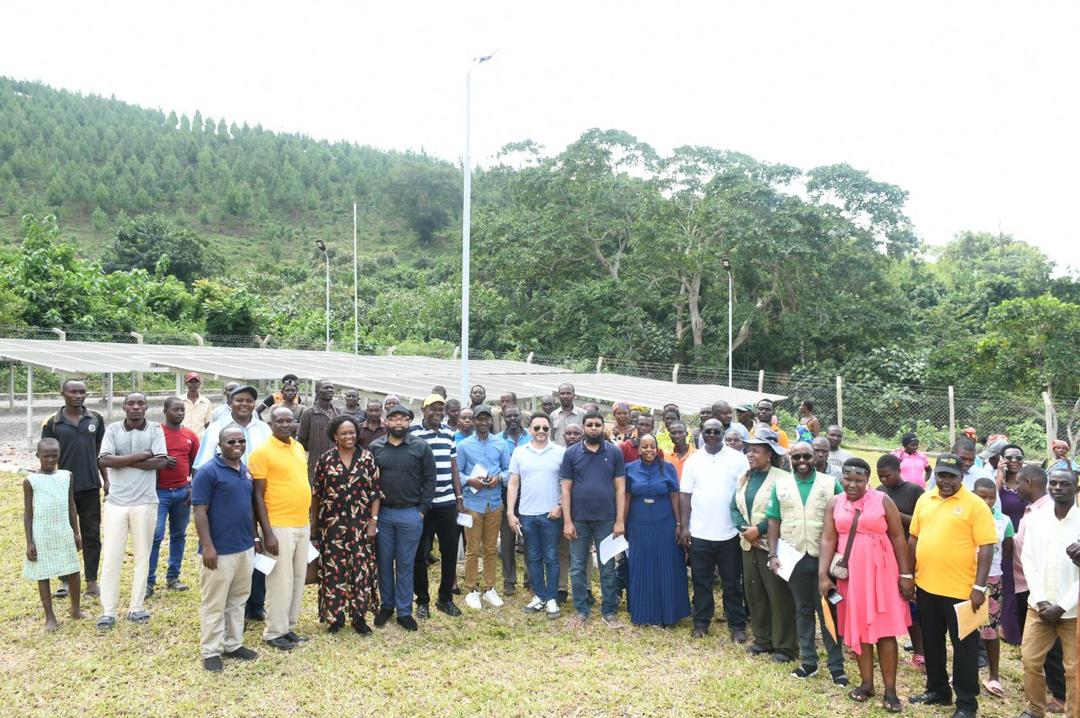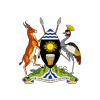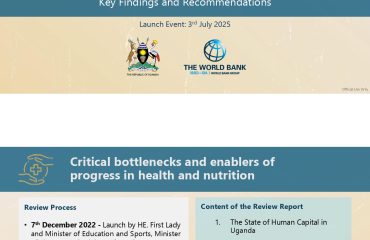
The Government of Uganda, through the Ministry of Local Government, in collaboration with the Islamic Development Bank (IsDB) and the Lives and Livelihoods Fund (LLF), recently conducted a field appraisal mission to selected districts.
The primary objective of this mission was to evaluate the accomplishments of the initial phase of the Local Economic Growth Support (LEGS) Project and to inform the design of its subsequent phase.
The mission focused on Kyejonjo and Katakwi Districts, where stakeholders engaged with district leaders, project beneficiaries, and implementation teams to assess the impact of LEGS interventions on local livelihoods and service delivery.
The insights obtained from these visits will guide the planned expansion of the project from 17 to 55 districts throughout the country. Additionally, the partners are exploring potential funding opportunities for Phase II, with a particular emphasis on climate change adaptation and sustainability to ensure long-term benefits for the targeted communities.
The sites visited included the Kanapa-powered solar installation in Magoro sub-county, the Orungo Corner water scheme in Katakwi District, and Kaizikashya in Kyejonjo.
During discussions with residents, Mr. William Sunday, a resident of Kiredu Village and a beneficiary of the project, stated, “We now have a public tap stand in our trading centre. Previously, we drew water from the Kaizikashya stream, which was also utilised by animals. Today, fetching a 20-litre jerrycan costs Shs100, which is considerably affordable compared to prior costs when long distances had to be covered.”
He further remarked, “We have previously risked our children’s safety while fetching water. We express our gratitude to the government for their considerations, and we hope that other villages still awaiting safe water will also receive access.”
Another notable advancement is represented by the Orungo Corner piped water scheme, which serves the community, including the Aakum Health Centre. Ms. Achom Stella, the clinic manager, explained that there were instances in the past when mothers would give birth without access to clean water. However, with the initiation of the water project, such challenges have been alleviated, as clean water is now readily available within their compound. She conveyed her appreciation to the government for implementing a project that has addressed numerous issues.
In addition to providing water, the project has introduced clean energy solutions to remote communities through solar mini-grids, reaching areas nearly 40 kilometres away from the national grid. New household connections are now empowering village shops, juice processing, and small-scale manufacturing, thereby replacing previous conditions characterised by darkness.
The Kanapa Solar Power Association, a registered community-based organisation, manages the solar scheme with technical support from the district engineer. Thus far, the association has accrued savings exceeding UGX 2 million from community contributions designated for future maintenance.
To enhance the implementation of Phase II through evidence-based planning, innovation, and research, the Ministry is collaborating with international technical partners, including the Millennium Promise Alliance (MPA) and the International Crops Research Institute for the Semi-Arid Tropics (ICRISAT).
These organisations provide global expertise in integrated rural development and climate-smart agriculture, which will be essential in scaling up the impact of LEGS II.


